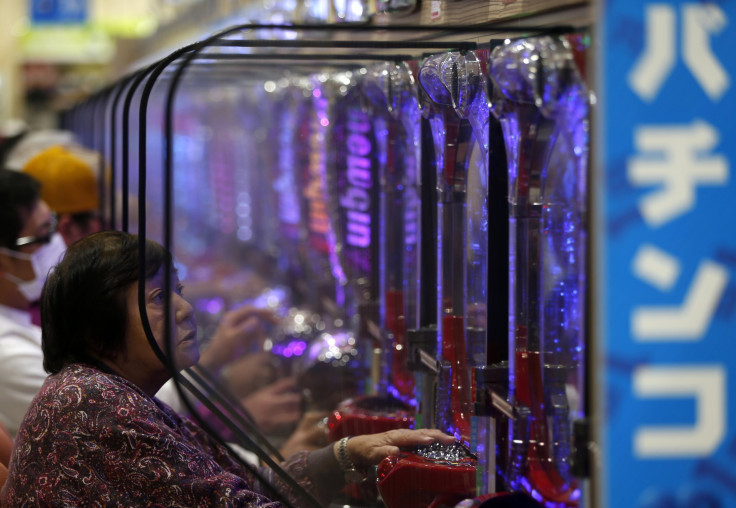Japan Q1 Growth Hits Over 2-Year High

(Reuters) - Japan's economy clocked its fastest pace of growth in more than two years in the first quarter as consumer spending jumped and business investment turned surprisingly strong in a sign of confidence in the prospects for future growth.
The upturn in capital spending - long a weak spot in Japan - could raise hopes the economy will have enough momentum to tide over an expected slump following an April 1 sales tax hike, easing pressure on the Bank of Japan for further stimulus to support growth.
Still, analysts also say the economy faces the risks in coming quarters of consumer demand not bouncing back convincingly after the sales tax increase and exports staying weak.
"Corporate earnings have been improving and some facilities have been ageing, so some firms felt they could not delay capital expenditure any longer," said Norio Miyagawa, a senior economist at Mizuho Securities Research & Consulting Co.
"Nonmanufacturers are more confident about the economy. Capex will continue to grow, but without investment from manufacturers the pace will be gradual."
Gross domestic product in the world's third-biggest economy rose at an annualized rate of 5.9 percent in the January-March period, government data showed on Thursday, as consumers rushed to buy before the sales tax increase to 8 percent from 5 percent.
The result handily beat expectations of 4.2 percent growth in a Reuters poll of economists and marked the fastest expansion since the third quarter of 2011, when the country was recovering from a devastating earthquake and nuclear disaster.
Capital spending rose 4.9 percent on the quarter, more than double the median estimate for 2.1 percent growth and the fastest expansion since October-December 2011, as companies used increased profits to invest in factories and equipment.
A Cabinet Office official cited spending by firms to upgrade their Windows operating systems and strong demand for construction machinery.
The capital spending figure could be encouraging for Prime Minister Shinzo Abe, who is keen for Japan Inc to spend more of its cash pile worth over 200 trillion yen ($2 trillion) and raise wages to help drive a sustainable economic recovery.
TEMPORARY PULLBACK
On a quarter-on-quarter basis, Japan's economy expanded 1.5 percent, more than the median estimate for 1.0 percent growth. It was the sixth consecutive quarter of expansion.
Private consumption, which makes up about 60 percent of the economy, rose 2.1 percent from the previous quarter. That matched a high last seen in the first quarter of 1997, just before the last increase in the sales tax.
Analysts and policymakers expect the economy to slump temporarily in the current quarter due to a pullback in consumer spending after the sales tax rise, before returning to moderate growth in the following quarters.
"We expect the economy will contract at an annualized rate of around 5 percent for April-June but will likely grow around the 2 percent level for July-September," said Taro Saito, senior economist at NLI Research Institute.
"The economy is expected to return to moderate growth after a temporary pullback, which is largely in line with the Bank of Japan's scenario. It is hard to consider the BOJ will ease judging from an economic growth and price increase perspective."
Economy Minister Akira Amari said on Thursday that the weakness in consumption after the tax rise was within expectations and temporary, adding that he hoped spending would recover as the job market improves.
Meanwhile, BOJ Governor Haruhiko Kuroda said companies were making progress passing on the cost of the tax rise to consumers.
Kuroda has repeatedly expressed confidence that the economy can withstand the impact from the tax rise and is on track to meet the central bank's 2 percent inflation target, easing speculation that the BOJ may need to launch additional easing.
Still, some analysts have said that if exports remain feeble, the BOJ may be forced as soon as July to expand stimulus by ramping up its purchases of government bonds and other assets.
The GDP data showed that external demand shaved off 0.3 percentage point from quarterly growth, the third straight quarter of subtraction for the traditionally export-reliant economy.
© Copyright IBTimes 2024. All rights reserved.











